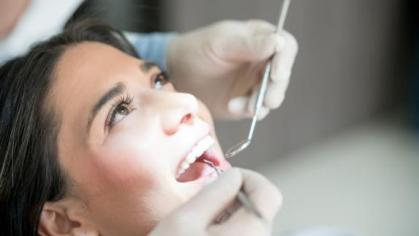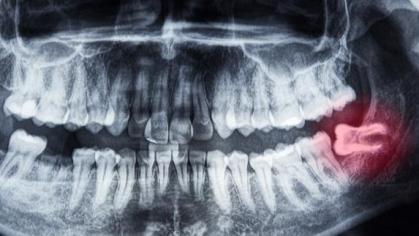Symptoms and Consequences of Faulty Crowns
If you’ve experienced tooth damage or other dental issues, your dentist or prosthodontist may have installed a dental crown. These discreet, tooth-shaped caps are placed over the affected tooth to solve several structural and cosmetic concerns. At the same time, crowns can cause problems if they fail or are improperly applied. Could bad dental crowns be causing the symptoms you’re experiencing? Learn more from the team at Rutgers Health University Dental Associates.
Why Are Dental Crowns Used?
Dental crowns have a large variety of uses, from cosmetic to protective, and are made to look and feel just like real teeth. You may have previously received a dental crown to:
- Hold fillings in place
- Connect bridges
- Strengthen and restore teeth affected by tooth decay
- Protect weak or cracked teeth
- Cover stained or discolored teeth
- Cover dental implants
Identifying Bad Dental Crowns
Bad dental crowns can sometimes result from an improper application, but they are also caused by other common dental concerns, including injuries to the mouth, tooth decay, tooth grinding, and eating or chewing hard foods.
A faulty crown is usually hard to miss, often causing mild to severe tooth pain, inflammation, and tooth decay. Over time, this can lead to infections and further symptoms. If you have a faulty crown, you may notice:
- Dental overhangs that are difficult to clean
- A misshapen appearance
- Insecure placement
- Too much space between the crown and surrounding teeth
- Too little space between the crown and surrounding teeth
- An overall poor fit
Dental crowns can also deteriorate over time. On average, they are expected to last up to 15 years before replacement. If not replaced in this time, there’s a good chance your crown will become damaged.
What to Do if a Crown Fails
When a dental crown breaks, detaches, or is otherwise compromised, it’s important that you make an appointment with a dentist or prosthodontist as soon as possible. If the crown becomes detached, do not attempt to place it back over the tooth yourself. Doing so creates crevices for plaque and tartar to build up, causing tooth decay and even infection. Instead, place the crown in a baggie and bring it to your appointment.
Help for Bad Dental Crowns
Restoring your dental crowns after damage helps ensure they are able to provide the protection and support your teeth need for good oral health. If you suspect you’re dealing with bad dental crowns, make an appointment with Rutgers Health University Dental Associates today in Newark or New Brunswick. We’ll assess the condition of your crowns and provide a replacement if needed to relieve pain and prevent infection.



